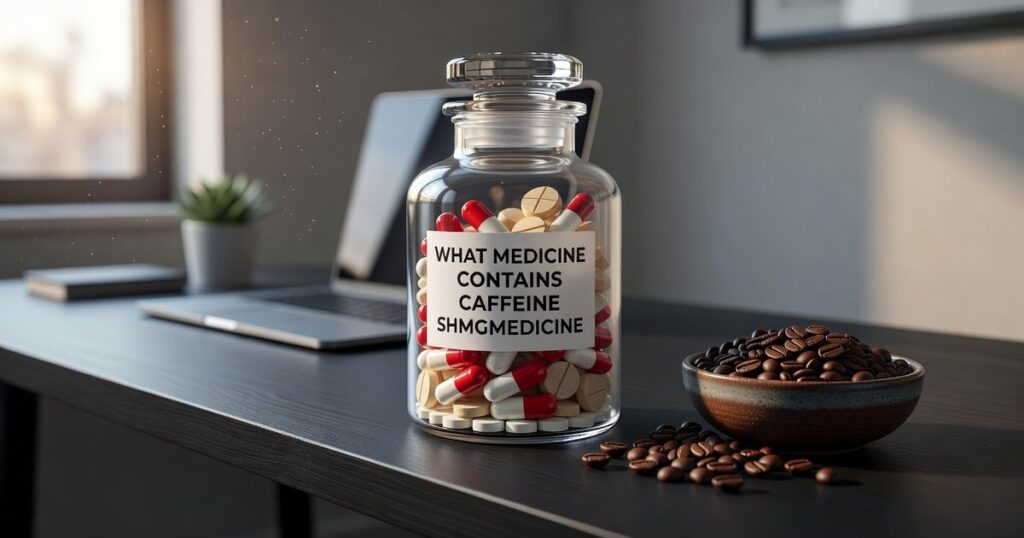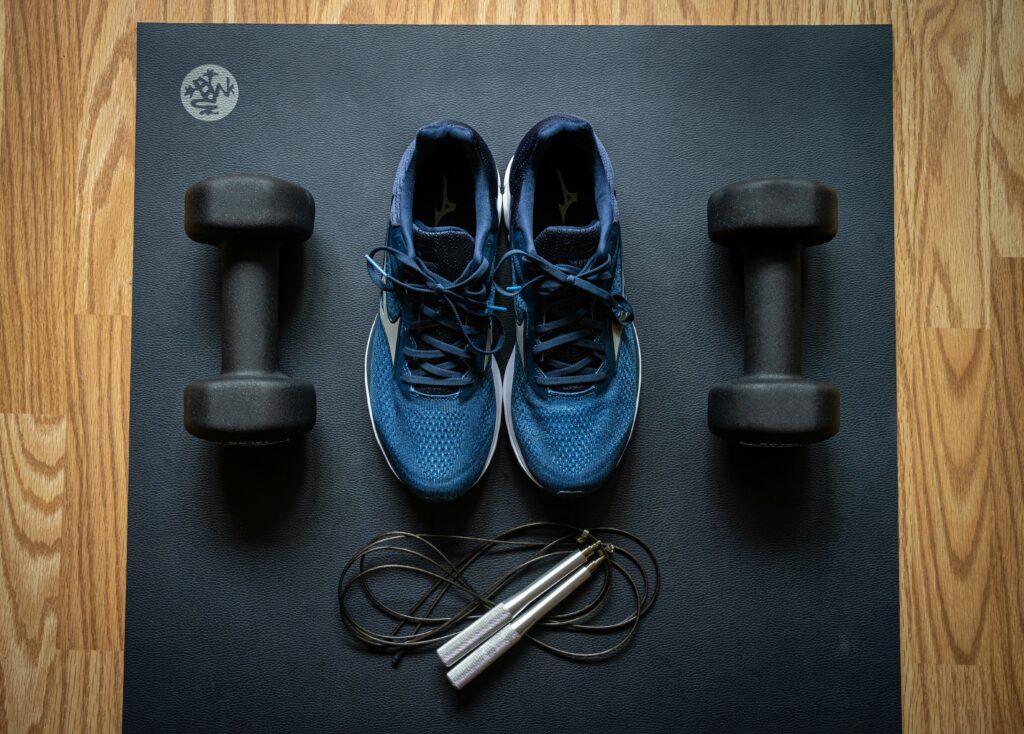I need to tell you something about the pills sitting in your medicine cabinet right now.
Some of them contain caffeine. You probably don’t know which ones.
Here’s the problem: you might be taking medication for a headache at 3pm and wondering why you can’t fall asleep at 11pm. Or you’re managing anxiety while unknowingly taking a drug that’s making it worse.
Most people have no idea they’re consuming caffeine through their medications. The labels don’t always make it obvious.
I’ve seen too many cases where someone is trying to cut back on coffee but still feels jittery and restless. Turns out their pain reliever has been dosing them with caffeine all along.
This article will show you what medicine contains caffeine shmgmedicine. I’ll explain why pharmaceutical companies add it in the first place and what that means for your body.
We’re pulling from established pharmaceutical research and drug composition data. No guessing here.
You’ll learn which common medications contain caffeine, how much they actually have, and what to watch for if you’re sensitive or dealing with specific health conditions.
If you take medication regularly, you need to know this. It affects your sleep, your anxiety levels, and how your other medications work.
Why Is Caffeine Added to Medications? The Science of Synergy
Most people think caffeine in medicine is just there to wake you up.
They’re wrong.
I see this assumption all the time. Someone picks up a cold medication, notices caffeine on the label, and assumes it’s a cheap trick to make them feel better without actually doing anything.
But the science tells a different story.
Caffeine acts as what we call an analgesic adjuvant. That’s a fancy way of saying it makes pain relievers work better. Studies show it can boost the effectiveness of acetaminophen and aspirin by up to 40% (Journal of Clinical Pharmacology, 2007).
Think about that for a second. You can take less of the primary drug and get better results.
Sure, caffeine does counteract drowsiness from antihistamines in cold and flu meds. That’s the obvious part. But what medicine contains caffeine shmgmedicine for goes deeper than just keeping you awake.
Here’s what most articles won’t tell you.
Caffeine constricts blood vessels. When you have a migraine or tension headache, your blood vessels are often dilated. Caffeine helps reverse that process, which is why it shows up in headache medications specifically.
It’s not filler. It’s not marketing.
The FDA requires proof that every ingredient serves a purpose. Caffeine made the cut because it works.
Common Over-the-Counter (OTC) Drugs with Caffeine
You might be surprised by how many medications in your cabinet contain caffeine.
I’m talking about products you reach for without thinking twice. Pain relievers. Cold medicine. That little pill you take when you need to stay awake.
Understanding what medicine contains caffeine shmgmedicine helps you avoid accidentally overdoing it. Because when you stack a coffee with a pain reliever that has 65mg of caffeine, you might wonder why your heart’s racing.
Let me break down where caffeine hides in common OTC drugs.
Pain Relievers
These are probably sitting in your medicine cabinet right now.
Excedrin Migraine contains 65mg of caffeine per tablet. The caffeine actually helps the other ingredients work better for headaches (it constricts blood vessels in your brain).
Midol Complete has 60mg per caplet. Women taking this for cramps often don’t realize they’re getting a solid caffeine dose along with the pain relief.
Anacin packs 32mg per tablet. Not as much as the others, but it adds up if you’re taking multiple doses.
The benefit here? Knowing these amounts means you can time your doses better and avoid the jitters.
Cold and Flu Remedies
Daytime cold formulas often include caffeine to counter the drowsiness from antihistamines.
Products like some versions of Excedrin and combination cold medicines add caffeine so you can function while you’re sick. The typical range is 30 to 65mg per dose.
This helps you stay alert at work when calling in sick isn’t an option. Just check the label because nighttime versions skip the caffeine for obvious reasons.
Weight Loss Aids and Diuretics
Caffeine shows up here for two reasons. It slightly boosts your metabolism and it makes you pee more.
Many diet pills and water retention products list caffeine as a main ingredient. The amounts vary widely but can go up to 200mg per serving.
I won’t name specific brands because this category changes constantly. But if you’re taking anything marketed for weight loss or water retention, flip it over and read the label.
Alertness Aids
These don’t hide what they are.
Vivarin delivers 200mg of caffeine per tablet. That’s roughly two cups of coffee in one pill.
NoDoz offers the same 200mg dose. Some versions come in lower strengths around 100mg.
The benefit is obvious. You know exactly what you’re getting and can dose accordingly. No guessing about whether your medication will keep you up at night.
Just remember that 200mg hits different when you’re not used to it. Start with half a tablet if you’re caffeine sensitive.
Caffeine in Prescription Medications: Beyond the OTC Aisle
Most people know caffeine shows up in energy drinks and coffee.
What they don’t realize is that doctors prescribe it too.
I’m talking about actual prescription medications where caffeine plays a medical role. Not just some random additive.
Take Cafergot, for instance. It combines ergotamine with caffeine to treat severe migraines. The caffeine isn’t there for a pick-me-up. It helps constrict blood vessels and makes the ergotamine work better (which is why you won’t find this combination over the counter).
Here’s something that surprised me when I first learned about important facts about medicine shmgmedicine.
Doctors use caffeine citrate to treat premature babies who stop breathing during sleep. It’s called apnea of prematurity. The caffeine stimulates their respiratory system and keeps them breathing regularly. We’re talking about tiny infants in NICUs whose lives depend on this medication.
That’s a far cry from your morning latte.
Beyond these specific cases, some prescription painkillers include caffeine to boost their effectiveness. The research shows caffeine can make certain pain medications work about 40% better.
So when you see what medicine contains caffeine shmgmedicine, you’re looking at everything from migraine treatments to life-saving interventions for newborns. The medical applications go way beyond what most people expect.
Understanding the Risks: Side Effects and Health Considerations

Here’s what most people don’t realize about what medicine contains caffeine shmgmedicine.
You’re already drinking two cups of coffee. Maybe a soda at lunch. Then you pop a headache pill without thinking twice.
Suddenly you’re at 500mg of caffeine and wondering why your heart feels like it’s trying to escape your chest.
The math matters.
The FDA says most healthy adults can handle up to 400mg of caffeine per day. That’s roughly four cups of coffee. But here’s where it gets tricky.
A single dose of some migraine medications can pack 130mg. Your morning coffee? Another 95mg. That afternoon energy drink? Add 80mg more.
You see the problem.
When Caffeine Turns Against You
I’ve seen people brush off the side effects until they can’t sleep for the third night in a row.
Common issues include jitteriness that makes your hands shake during meetings. Insomnia that leaves you staring at the ceiling at 2am. A rapid heartbeat that feels unsettling (because it is). Stomach irritation that mimics acid reflux. Anxiety that seems to come out of nowhere.
Some people say these side effects are overblown. That most folks handle caffeine just fine.
They’re right for some people. But not everyone.
Who Needs to Pay Attention
Pregnant women should cap intake at 200mg daily according to ACOG guidelines. Your developing baby processes caffeine much slower than you do.
People with heart conditions need to be careful. Caffeine affects heart rate and blood pressure in ways that matter when your cardiovascular system is already stressed.
If you have an anxiety disorder, caffeine can make things worse. It triggers the same physiological responses your body associates with panic.
And here’s something most people miss. Certain medications don’t play well with caffeine. Some antibiotics slow down how your body breaks it down. Asthma drugs like theophylline can cause serious interactions.
Check how medicine affects the body shmgmedicine before mixing caffeine with your prescriptions.
Pro tip: Keep a simple log for one week. Write down every source of caffeine you consume. You’ll probably be surprised by the total.
How to Check for Caffeine and Find Alternatives
Most people don’t realize how many medicines hide caffeine in their ingredient lists.
I’m talking about pain relievers, cold medications, even some allergy pills. You pop them thinking you’re just treating a headache and suddenly you’re wired at midnight.
Reading the Drug Facts Label
Here’s what you need to do.
Flip to the back of any over-the-counter product. Look for the Active Ingredients section at the top of the Drug Facts label.
Caffeine shows up by name. Sometimes it’s listed as “caffeine” or “caffeine anhydrous.” If you see it there, you know what you’re getting.
But here’s the catch. Some combination products bury it in the fine print. That’s why you need to scan the entire active ingredients list, not just the first line.
Ask Your Pharmacist
Your pharmacist knows what medicine contains caffeine shmgmedicine stocks and can point you toward alternatives fast.
Just tell them what symptom you’re treating. They’ll find you a caffeine-free option that does the same job.
No guessing. No label confusion.
Taking Control of Your Caffeine Consumption
You came here to find out which medications contain caffeine and why it matters.
Now you know.
The solution is simpler than you might think. Read labels carefully and talk to your doctor or pharmacist when you’re not sure.
Many over-the-counter pain relievers have caffeine. So do some migraine medications and weight loss pills. Even certain cold remedies sneak it in.
Managing your total caffeine intake means tracking all your sources. That morning coffee is just one piece of the puzzle.
Here’s what you should do right now: Check the labels in your medicine cabinet. Look for caffeine listed in the active ingredients. Add up what you’re actually consuming each day.
You might be surprised by the total.
What medicine contains caffeine shmgmedicine has given you the information you need. Your next step is to use it.
Make choices that support your health goals. Your body will thank you for paying attention.



